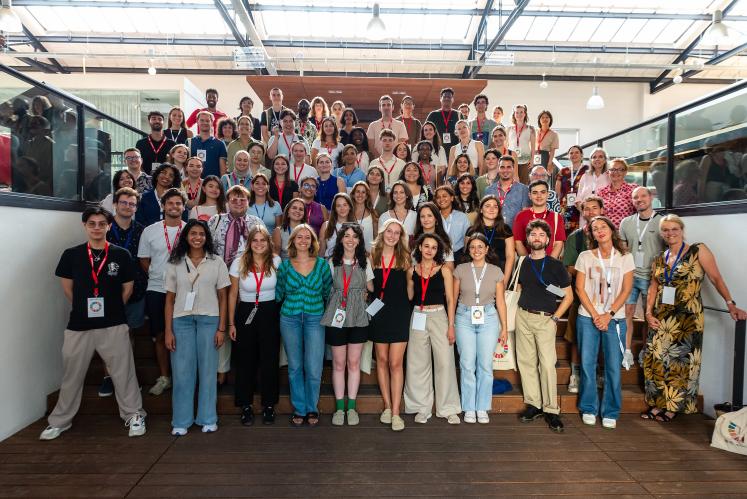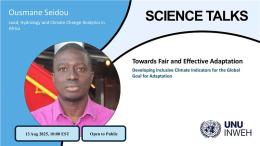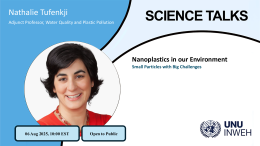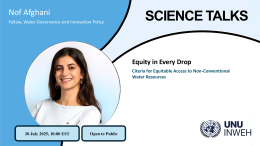Each year, the Master of Public Policy and Human Development (MPP) at UNU-MERIT brings together a diverse group of students united by a commitment to tackling global challenges. This year’s graduating class has produced an impressive range of thesis projects — from in-depth policy analyses to innovative methodological contributions — all to make research matter. The following selection of student research offers a window into the breadth and depth of work produced in the MPP programme and the policy relevance it delivers.
In her mixed-methods study on attitudes toward immigrant detention in Arizona, Meg Northrup found that political leanings strongly shaped views. Still, humanitarian concern alone did not predict opposition to detention. Even among participants with opposing views, there was shared concern about detention conditions — a potential opening for bipartisan reform. Her findings challenge political narratives of deep polarisation, suggesting a more nuanced public opinion landscape that could inform smarter, targeted policy interventions.
Katharina Heiduk explored how the textile industries in the EU and China could work together to accelerate circular economy transitions. While both regions are making strides through bio-based materials and Industry 4.0 technologies, gaps remain in awareness, socio-cultural acceptance, and consumer behaviour. Her research proposes deepening bilateral cooperation in these innovation niches, turning shared challenges into opportunities for climate collaboration.
Eimear McPhillips analysed a decade of Irish housing and health data using structural equation modelling (SEM) to capture complex causal relationships. Her findings reveal that inadequate housing is both widespread and a significant driver of poor health outcomes, particularly among vulnerable groups such as migrants, people with disabilities, and the unemployed. She argues for housing adequacy to be treated as a public health imperative, with targeted interventions to reduce health inequalities.
In Germany, young adults care deeply about climate change, but often struggle to act sustainably. Veronika Voeste’s research, grounded in the COM-B behaviour change model, identified 67 distinct barriers to pro-environmental behaviour, from structural obstacles to motivational trade-offs. She calls for multi-level policies that make sustainable choices the most accessible, affordable, and socially reinforced options.
Anna Bies examined how Women* of colour experience discrimination in German universities at the intersection of racism and sexism. Using qualitative surveys and interviews, she uncovered patterns of microaggressions, exclusion, and institutional inaction, alongside strategies of collective resistance. Her work calls universities to move beyond symbolic diversity measures toward concrete structural reforms, such as anti-bias training, decolonised curricula, and stronger complaint mechanisms.
Riya Pawar compared nature-based and engineered solutions to nutrient pollution, identifying fungi-based bio-remediation as one of the most promising and scalable technologies. Her research underscores the need to commercialise such innovations, which offer low-impact, cost-effective ways to address one of agriculture’s most persistent environmental challenges.
Through analysis of political speeches, party manifestos, and official statements, Emma Clarke found that far-right frames on immigration have subtly influenced mainstream political rhetoric in Ireland. While not adopting overt extremism, mainstream parties have softened and repurposed exclusionary narratives, shifting what is politically acceptable. Clarke warns that this discursive accommodation risks normalising far-right ideas, even in historically resilient contexts.
These projects reflect the MPP’s core mission: combining rigorous research with practical policy relevance. Whether addressing local issues in Ireland, systemic challenges in Europe and China, or global crises in climate and migration, our students are producing work that advances scholarship and speaks directly to policymakers and practitioners. As UNU-MERIT prepares for the next academic year, these theses stand as a testament to the programme’s role in training graduates who can navigate complexity, bridge divides, and design solutions that matter.
Suggested citation: Salama Diego. "From Migration to Climate Action: How MPP Students Are Shaping Policy Through Research ," United Nations University, UNU-MERIT, 2025-08-12, https://unu.edu/merit/article/migration-climate-action-how-mpp-students-are-shaping-policy-through-research.





